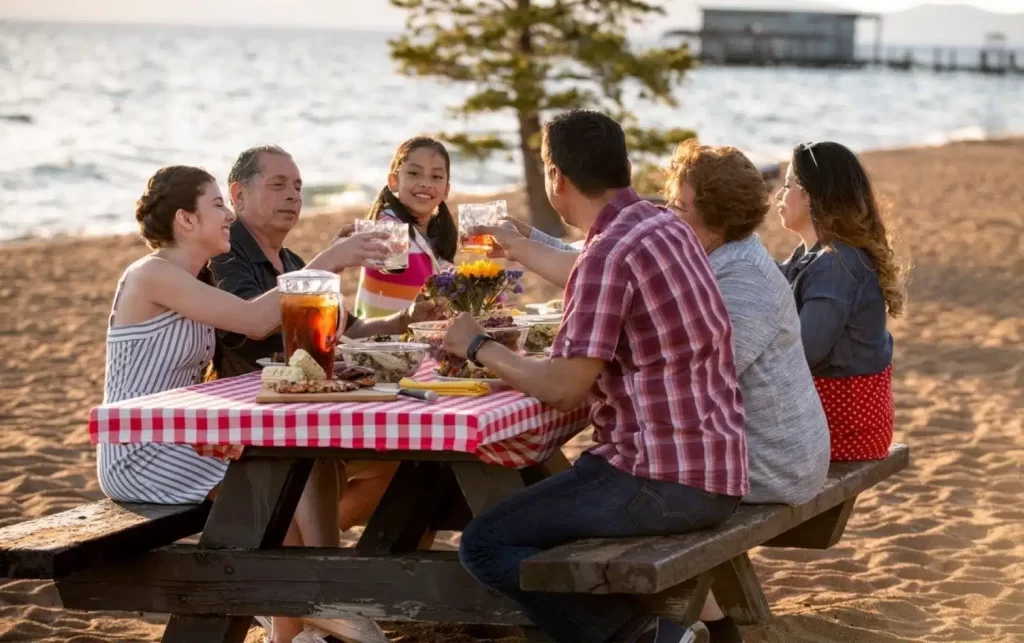It has been a year full of “pivots,” not just at work and home, but with our health and how we take care of ourselves. Whether you’ve developed a new meditation routine, learned to make every bread imaginable, stopped exercising when gyms closed, changed your eating habits, developed a newfound love for at-home spinning, lost weight, gained weight or not put on real pants in months, it’s safe to say your health and wellness habits have recently changed. It’s also safe to say that we all deserve a break. Many people are finally feeling comfortable enough to go on vacation again, which is a step toward better health. Now is the time to re-familiarize with airport etiquette, road trip snacks and packing strategies. It can also be helpful to have a refresher on how to maintain the healthy habits you’ve developed, or cultivate some new ones while you’re away (there is often no better time!). Here are some of my top tips for maintaining and/or cultivating healthy habits while on vacation.
EAT REGULARLY
With vacation often comes irregular schedules and a lack of routine, and while that is part of what makes vacation so great, it can be detrimental to certain health habits. Skipping meals, whether it’s purposeful restriction or forgetfulness, and not having adequate snacks is something I see often with clients. It can lead to myriad challenging situations, from overeating and bloating to constipation, lack of energy and crankiness. I usually encourage going no longer than 3–4 hours without eating, and having snacks on hand when necessary. Take a look at your itinerary and map out restaurants or fast-casual spots you can eat at when you’re out and about to avoid getting into a sticky (and hungry!) situation. Stocking up on portable snacks like squeezable nut butter packets, granola bars and trail mix before you leave for a trip can be super helpful to keep the “hanger” at bay. Stopping by a grocery store for things like fresh fruit, yogurt and cheese sticks can also be a game changer. If you find yourself restricting or depriving yourself during meals, know you have permission to enjoy any food, whether it’s on vacation or in the comfort of your own home (and if this is challenging for you, working with an experienced registered dietitian can be helpful!).
HYDRATE
With schedule and routine changes comes some forgetfulness to drink, drink, drink—water, that is. Dehydration can happen fast, especially in warmer climates, and having a hydration schedule is a top priority. Not only can dehydration lead to headaches and sluggishness, but it can also back up the digestive system and lead to significant discomfort. Get a big bottle of water before boarding your flight and drink often, since flying can also be dehydrating, and do the same thing once you get to your destination so your hotel room or rental is stocked with fluids. When out and about, bring a reusable water bottle to refill as you explore and play tourist. If you’re imbibing, try alternating glasses of water with your cocktail of choice.
MOVE
Whether you’ve started a new exercise routine during quarantine or want to begin one now, vacation is a great time to move in a way that’s enjoyable. Taking advantage of new-to-you hiking trails, running routes (one of the best ways to see a new city!), exercise studios and pools can reinvigorate your affinity for a specific form of movement or help you cultivate an entirely new one. Self-guided walking tours can also be a fun way to see a new spot and get a ton of steps in without the stress of following a strict schedule. A bit of a break can also give you some time to think about what you want your exercise routine to look like once you get home. I always encourage clients to be realistic in how they plan exercise and really focus on the activities they enjoy. That’s the best way to start doing something and stick to it.
REST
Wanting to do all the things while on vacation can be tempting, but don’t forget one of the best parts of being away: rest and relaxation! The body and the mind recharge during sleep, and making time for an extra hour or two when you have no deadlines, meetings, school drop-offs, or other commitments can work wonders. Resting your body in other ways, like not exercising if you’ve been going hard on the workouts at home, can help your muscles recover and feel fresh when you pick things back up again. Relaxing on a beach chair with a good book for the better part of a day should not be underestimated.
While vacation is a great time to think about and focus on your health and wellness, the most important factor of any vacation is, of course, fun. If that means letting go of some rigidity you have around your diet or exercise routine, do it. Having fun is a health-promoting behavior, just like eating well, movement and getting good sleep, and it can (and should) be a part of any wellness routine.







